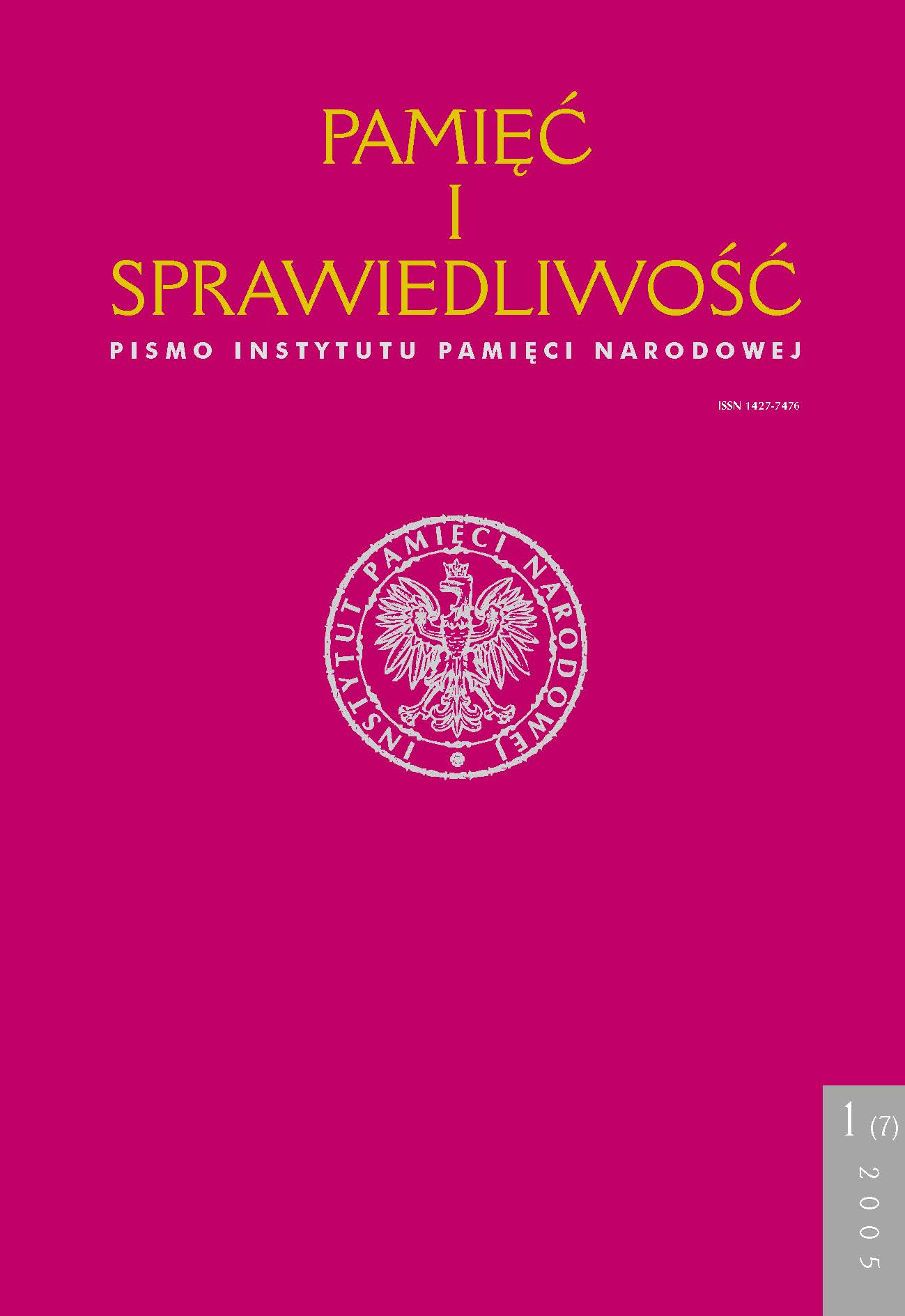Współczesna historiografia a badania nad Stasi. Osobna niemiecka droga rozliczenia z przeszłością
Pamięć i Sprawiedliwość, Bd. 7 Nr. 1 (2005), pages: 341-353
Publication date: 2005-06-30
Abstract
The article discusses the opening of GDR archives, which have paved the way for a large-scale reckoning with the communist past in Germany. The legacies of the Ministry of State Security were particularly important in this process. After the first stage of revelations on secret informers and the criminal methods of the state security service, the emphasis in research shifted to the systematic analysis of Stasi presence in each sector of society. At the same time the limits of secret police influence started to be discussed as well. The broad availability of former secret records opens opportunities for methodological innovation. One important development is the comparison with other dictatorial regimes such as Soviet Stalinism and Nazi Germany, with intense attention paid to both by international researchers. Opportunities of comparison are discussed on the basis of empirical data on the informer network in East German society. While the penetration of society by the MfS of the seventies and eighties gained a (supposedly) world-wide singular intensity, the Gestapo for instance worked with networks of relatively few informers. Due
to the wide support within the German population in Nazi Germany, spontaneous denunciations and cooperation between Gestapo and other state offices were of much greater importance in political persecution.
The article pleads for overcoming the traditional separation between history of government and the history of everyday life. Stasi research must not be restricted to the history of the repression apparatus and the persecution of opposition and resistance, but open its mind to the general history of society. Moreover, social history and the history of everyday life can’t be written “with politics left out”. For this effort, a broad, and even broader, access to secret polices archives is necessary.
Am häufigsten gelesenen Artikel dieser/dieses Autor/in
- Arvydas Anušauskas, Henryk Dominiczak, Jerzy Eisler, Jens Gieseke, Andrzej Grajewski, Dariusz Jarosz, Irenej Kratochvil, Ehrhart Neubert, Jurij Szapował, Oldřich Tůma, Ankieta historyczna , Pamięć i Sprawiedliwość: Bd. 3 Nr. 1 (2003)
 Język Polski
Język Polski
 English
English
 Deutsch
Deutsch
 Français (France)
Français (France)
 Italiano
Italiano
 Русский
Русский


 PDF (Język Polski)
PDF (Język Polski)
